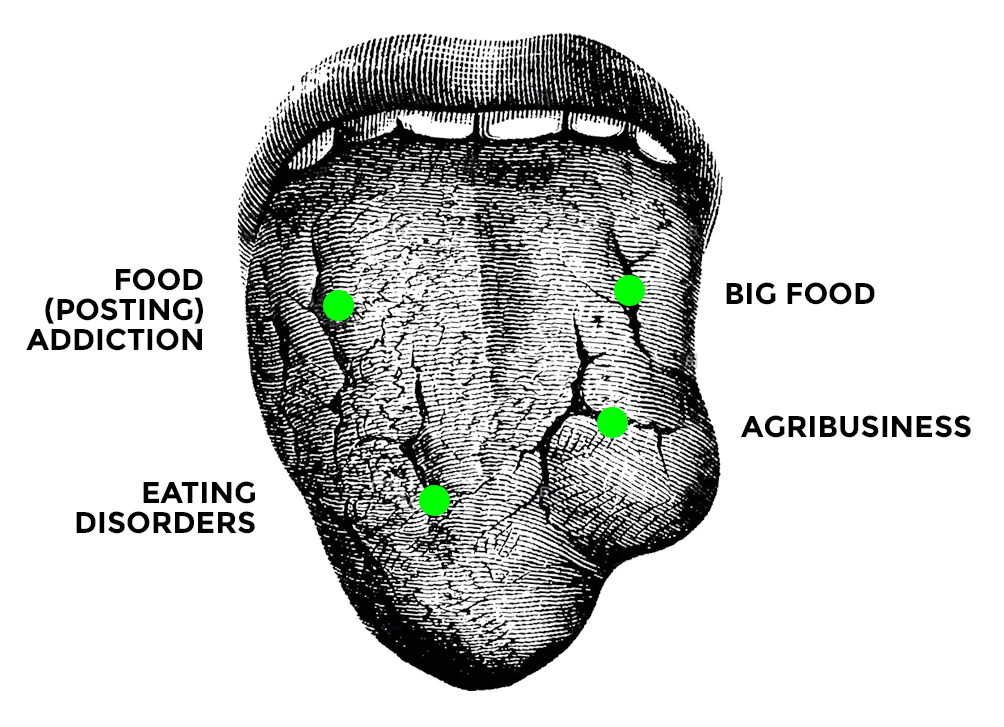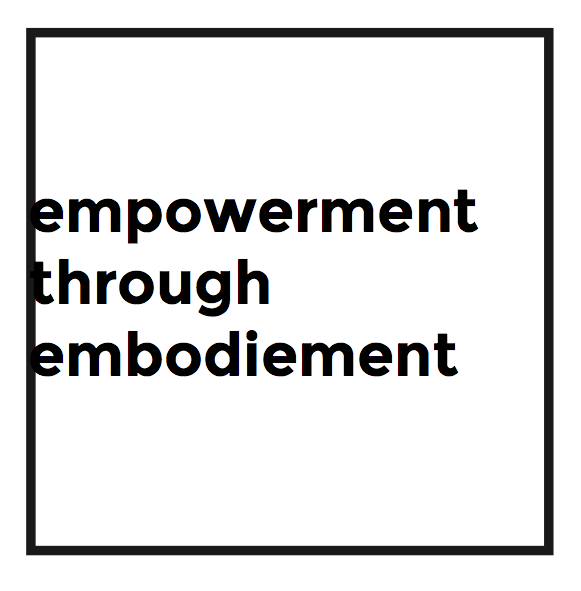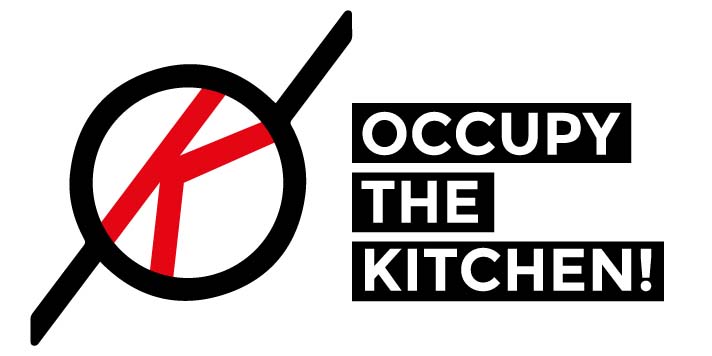/// OCCUPY THE KITCHEN! / vol.3 / 2019-20 ///
Food Performances @ Zona Franca

︎︎
The 3rd edition of Occupy th kitchen! presented a new format and new themes, more connected to the Italian scenario:
︎︎“caporalato”
The new season presents also a new structure: no longer a programming primarily characterized by food performances, but by self-productions that meet the aforementioned requirements and themes. Instead, there will be an alternation of:
The project maintain an experimental attitude and a fresh boost hybridising contemporary art with economics and activism, through a form of awareness raising boosted by food&culture.
︎
The focus of Occupy the kitchen! vol.3 can be identified through 4 streams (merging approaches and purposes):
/// activism through embodiment
of food and food-related cultural contents. Let’s eat-think-talk, with substance, quality and professionalism.
/// awaken the taste buds
we speak directly to your primordial sense of taste (and to the survival spirit in tune with nature).
/// gastroccupancy!
occupation of the gastrointestinal tract
/// arouse the neuronal response of the hypothalamus (desire for food) and the amygdala, educating the endorphins: no (artificial) “bliss point” [︎︎︎ to learn more see here: ref. 1 - 2 - 3], taste and flavor purified on the basis of a high quality of raw materials and elements in which development occurs of the same (soil, air, water).
︎︎
With this edition we do not expect to give any definitive answer, but, starting from large questions asked collectively and with the support of a large community of experts, we will reflect on the criticality and potential of the fundamental elements:
︎ soil (detox)
if the soils are seriously compromised in their fertility and cultivability, which crops can help remediate?
("Phyto-remediation")
︎ air (clean)
if the air is heavily polluted, which crops can contribute most to purging it of toxins? And which ones should be avoided in urban centers?
︎ water (pure)
how can we talk about food regardless of the condition of great scarcity of water resources?
And taking into account the pollution of the waters of the seas, which fish do you prefer and which to avoid?
︎
PRESS RELEASE
download it here
︎
PRESS KIT
clic here to access
︎
For more informations do not hesitate to contact us press@zonafranca.biz
The 3rd edition of Occupy th kitchen! presented a new format and new themes, more connected to the Italian scenario:
︎︎“caporalato”
︎︎ not certified organic products
︎︎ “italian sounding”
The new season presents also a new structure: no longer a programming primarily characterized by food performances, but by self-productions that meet the aforementioned requirements and themes. Instead, there will be an alternation of:
talks
workshops
book presentations
The project maintain an experimental attitude and a fresh boost hybridising contemporary art with economics and activism, through a form of awareness raising boosted by food&culture.
︎
The focus of Occupy the kitchen! vol.3 can be identified through 4 streams (merging approaches and purposes):
/// activism through embodiment
of food and food-related cultural contents. Let’s eat-think-talk, with substance, quality and professionalism.
/// awaken the taste buds
we speak directly to your primordial sense of taste (and to the survival spirit in tune with nature).
/// gastroccupancy!
occupation of the gastrointestinal tract
/// arouse the neuronal response of the hypothalamus (desire for food) and the amygdala, educating the endorphins: no (artificial) “bliss point” [︎︎︎ to learn more see here: ref. 1 - 2 - 3], taste and flavor purified on the basis of a high quality of raw materials and elements in which development occurs of the same (soil, air, water).
︎︎
With this edition we do not expect to give any definitive answer, but, starting from large questions asked collectively and with the support of a large community of experts, we will reflect on the criticality and potential of the fundamental elements:
︎ soil (detox)
if the soils are seriously compromised in their fertility and cultivability, which crops can help remediate?
("Phyto-remediation")
︎ air (clean)
if the air is heavily polluted, which crops can contribute most to purging it of toxins? And which ones should be avoided in urban centers?
︎ water (pure)
how can we talk about food regardless of the condition of great scarcity of water resources?
And taking into account the pollution of the waters of the seas, which fish do you prefer and which to avoid?
︎
PRESS RELEASE
download it here
︎
PRESS KIT
clic here to access
︎
For more informations do not hesitate to contact us press@zonafranca.biz
︎︎
La 3a edizione ha presentato un nuovo format e nuovi temi maggiormente connessi alla situazione italiana:
︎︎ caporalato
Questa nuova stagione porta con sé anche una nuova struttura: non più una programmazione primariamente caratterizzata
da food performances, bensì da auto-produzioni che rispondono
ai requisiti e temi sopraccitati. Vi sarà invece un’alternanza di:
dibattiti
Il progetto mantiene il taglio sperimentale ibridazione tra arte contemporanea, economia e attivismo attraverso una forma di “consapevolezza collettiva”.
︎
Il focus di Occupy the kitchen! vol.3 è individuabile attraverso 4 direzioni (sommatoria di approcci e scopi):
/// attivismo attraverso l’incorporazione (embodiment)
ingestione di alimenti e contenuti culturali connessi, si mangia-riflette-parla, con sostanza, qualità e professionalità.
/// risvegliare le papille gustativeparliamo direttamente al vostro primordiale senso del gusto (ed al senso di sopravvivenza con la natura).
/// gastroccupancy!
occupazione del tratto gastro-intestinale
/// destare la risposta neuronale dell’ipotalamo (loco del desiderio di cibo) e dell’amigdala, educare le endorfine: no (artificial) “bliss point” [lett. punto di beatitudine indotto da un ponderato equilibrio di sali, zuccheri e grassi studiato dalla psicofisica di H.Moskowitz ︎︎︎ per approfondire: rif. 1 - 2 - 3], ma con gusto e sapore autentici sulla base di un’alta qualità delle materie prime e degli elementi in cui si nascono e si sviluppano le stesse (terreno, aria, acqua).
︎︎
Con questa edizione non si pretende di dare alcuna risposta definitiva, bensì, a partire da grandi quesiti posti collettivamente e con il supporto di un'ampia comunità di esperti, si rifletterà su criticità e potenzialità degli elementi fondamentali:
︎ terra (detox)
se i terreni sono gravemente compromessi nella loro fertilità e coltivabilità, quali colture possono aiutare a realizzare una bonifica? (”fito-rimediazione”)
︎ aria (pulita)
se l'aria è pesantemente inquinata quali coltivazioni possono contribuire maggiormente a epurarla dalle tossine?
E quali è opportuno evitare nei centri urbani?
︎ acqua (pura)
come si può parlare di cibo prescindendo dalla condizione di grande scarsità delle risorse idriche?
E tenendo conto dell'inquinamento delle acque dei mari quali pesci prediligere e quali evitare?
︎
Per maggiori informazioni scriveteci all’indirizzo:
ufficiostampa@zonafranca.biz
La 3a edizione ha presentato un nuovo format e nuovi temi maggiormente connessi alla situazione italiana:
︎︎ caporalato
︎︎ bio non certificato
︎︎ italian sounding
Questa nuova stagione porta con sé anche una nuova struttura: non più una programmazione primariamente caratterizzata
da food performances, bensì da auto-produzioni che rispondono
ai requisiti e temi sopraccitati. Vi sarà invece un’alternanza di:
dibattiti
laboratori
presentazioni di libri
Il progetto mantiene il taglio sperimentale ibridazione tra arte contemporanea, economia e attivismo attraverso una forma di “consapevolezza collettiva”.
︎
Il focus di Occupy the kitchen! vol.3 è individuabile attraverso 4 direzioni (sommatoria di approcci e scopi):
/// attivismo attraverso l’incorporazione (embodiment)
ingestione di alimenti e contenuti culturali connessi, si mangia-riflette-parla, con sostanza, qualità e professionalità.
/// risvegliare le papille gustativeparliamo direttamente al vostro primordiale senso del gusto (ed al senso di sopravvivenza con la natura).
/// gastroccupancy!
occupazione del tratto gastro-intestinale
/// destare la risposta neuronale dell’ipotalamo (loco del desiderio di cibo) e dell’amigdala, educare le endorfine: no (artificial) “bliss point” [lett. punto di beatitudine indotto da un ponderato equilibrio di sali, zuccheri e grassi studiato dalla psicofisica di H.Moskowitz ︎︎︎ per approfondire: rif. 1 - 2 - 3], ma con gusto e sapore autentici sulla base di un’alta qualità delle materie prime e degli elementi in cui si nascono e si sviluppano le stesse (terreno, aria, acqua).
︎︎
Con questa edizione non si pretende di dare alcuna risposta definitiva, bensì, a partire da grandi quesiti posti collettivamente e con il supporto di un'ampia comunità di esperti, si rifletterà su criticità e potenzialità degli elementi fondamentali:
︎ terra (detox)
se i terreni sono gravemente compromessi nella loro fertilità e coltivabilità, quali colture possono aiutare a realizzare una bonifica? (”fito-rimediazione”)
︎ aria (pulita)
se l'aria è pesantemente inquinata quali coltivazioni possono contribuire maggiormente a epurarla dalle tossine?
E quali è opportuno evitare nei centri urbani?
︎ acqua (pura)
come si può parlare di cibo prescindendo dalla condizione di grande scarsità delle risorse idriche?
E tenendo conto dell'inquinamento delle acque dei mari quali pesci prediligere e quali evitare?
︎
Per maggiori informazioni scriveteci all’indirizzo:
ufficiostampa@zonafranca.biz

